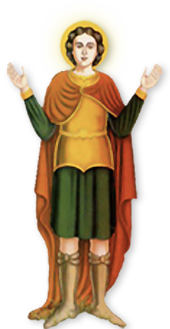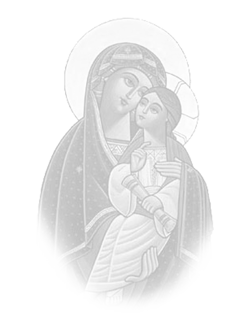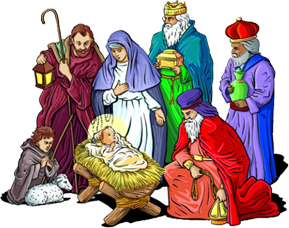The Papal Encyclical for the Glorious Feast of the Resurrection, 2015

لتحميل النسخة العربية اضغط هنا
In the Name of the Father, the Son, and the Holy Spirit, One God. Amen.
ÉÉ<rictoc ÉAnec]@ Aly;oc ÉAnec]
Christ is Risen. Truly, He is Risen.
I congratulate you on the glorious Feast of the Resurrection, which is the joy of all our joys, and the feast of all of our feasts. Resurrection in the Christian life is not just a historical event. Neither is it a mere occasion that we honor with a variety of celebrations, nor just an ordinary passing day. Resurrection is the foundation of our path of salvation which our Lord Jesus Christ completed on the wood of the cross. Resurrection is the focus of our faith. It is the realization of the forgiveness of all humanity. Resurrection is the core of spiritual struggle, since spiritual progress without the resurrection is meaningless. Moreover, it is the hope and promise of the coming eternal life. Without resurrection our Christian faith is pointless. Without resurrection, there is no peace for our daily earthly lives. Without resurrection, we have no hope for the future. The light of the resurrection illuminates our lives and brightens the path of every individual through each stage.
One may ask: “Did Jesus really come and die?”
Of course. The event of the resurrection took place more than 20 centuries ago. The resurrection did not occur in secret, but was well witnessed. Not just by one or two witnesses, but many. For example, the centurion who stabbed the side of Christ on the cross, and the guards of the tomb were witnesses to the resurrection of Christ. Pontius Pilate conducted a pompous trial for Christ the Lord. Pilate, in a theatrical pretense washed his hands and said famously; “I am innocent of the blood of this just person.” (Matthew 27:24). Notice the inconsistency of his statement: “Innocent and Just” yet delivered Him to judgment and death. The Jewish priests and head priests were witnesses of what happened at the cross and what happened at the time of resurrection. The women, who went early in the morning at dawn carrying spices they had prepared, are also witnesses for the resurrection of Christ the Lord. Additionally, there were physical signs of the death of Christ on the cross and of His resurrection. Recall the tearing of the curtain in the temple and the earth that trembled during the crucifixion. I remind you also of the huge stone which was placed at the door of the tomb to guard the corpse inside, as if they feared that the dead would escape. I remind you of the linen cloths that the disciples found where the Lord was buried. I remind you of the guards who secured the tomb and of the seal placed on the stone, which was the signature of the ruler. I remind you of the tomb that was new and no one was ever buried in it.
In raising man, God offered him the promise of salvation, which He Has fulfilled. This is the divine plan: Incarnation, Crucifixion, and Resurrection. Early-on in the service of Christ the Lord, when He went to the wedding at Cana of Galilee, He performed His first miracle where he transformed water into wine. When our Mother, Virgin Mary told Him, “They have no wine.” (John 2:3), She meant “They have no joy.” During the time of the Old Testament, people did not have the joy of salvation, the joy of Resurrection. The word “Wine” in the Holy Bible signifies “Joy.” The Lord Christ’s answer to her was strange. He said to her, “Woman, what does your concern have to do with Me? My hour has not yet come.” (John 2:4). This “hour” is the hour of crucifixion, and the hour of resurrection. It is man’s hour of joy. This is why we pray in the Sixth Hour “We give thanks to You, for You have filled all with joy. O Savior, when You came to help the world. Lord, glory be to You.”
How can we Respond to the Resurrection? How can we Benefit from the Resurrection?
I will discuss three fundamental points for this response.
First: There is Required Response.
When Herod heard the news of the birth of Christ, he did not go to see Him. He told the wise men, “Go and search carefully for the young Child, and when you have found Him, bring back word to me.” (Matthew 2:8). He thought it was excessive and improper for him to go. The Bible instructs us: “Draw near to God and He will draw near to you.” (James 4:8) For this reason, the Marys’ went to the tomb very early in the morning on the Resurrection day to receive this great blessing, the blessing of visiting the Holy Tomb at the dawn of the Resurrection Day. How great was that blessing? In the required response, you are present with all your emotion and inner feelings.
Second: There is Passionate Response.
There are people that when discussing a certain subject, their response is passionate. For instance, in the Old Testament when God asked Ibrahim to offer his son to Him as a burnt offering, it was not noted that he tarried, instead in a passionate response he rose early in the morning, saddled his donkey, and took Isaac his son, the firewood and the knife. Here is one whose relationship with Christ is alive and full of spiritual warmth. For this reason the Bible instructs us “Remember now your Creator in the days of your youth.” (Ecclesiastes 12:1) That is when there is spiritual fervor, and a strong will.
Third: There is Constant and Unceasing Response.
Which means man continues to strive in his spiritual life. There is something called “reaction time.” During this time, man interacts with God through prayers, Bible reading, and spiritual growth. Also through fasting, spiritual readings, and spiritual service. All of these create in man a state of continuous and unceasing responsiveness. This responsiveness makes one feel that he is living in the Light of Resurrection. For this reason, our Church makes the commemoration of Resurrection mandatory, active, daily and continuous. You may notice that the First Hour Prayer in the Agpeya commemorates the resurrection of our Lord. Sunday of every week is the day that God has made in remembrance of His resurrection. On the 29th day of every Coptic month we celebrate the Annunciation, Nativity, and Resurrection. Every year we celebrate the Feast of Resurrection not for one day, but for 50 days. We do not consider these fifty days as regular days of the week, but they are all “Sundays”. We can even call it, “a prolong Sunday” which expresses existence in eternity.
Notice that the period of 50 days is exactly seven weeks, which starts on a Sunday and ends on a Sunday. The Resurrection and the Pentecost Feasts are at the beginning and at the end of the 50 days, respectively. This is an expression of the perfect life in the Kingdom of Heaven. The Resurrection Feast is the “greatest joy” in our lives. In Church tradition, the first prayer of the daily Psalmody (Tasbeha) reads: “Arise, O children of the Light.” “Arise” reminds us of Resurrection and when singing one of the beautiful pieces in the midst of Tasbeha, The Psali Watos, we start with: “O sing unto Him Who was crucified, buried, and resurrected for us and trampled and abolished death.” Resurrection is a sensation and an existence which enables us to say with St Paul the Apostle: “That I may know Him and the power of His resurrection and the fellowship of His sufferings, being conformed to His death” (Philippians 3:10) Through resurrection we can build a strong and personal relationship with the Lord Jesus Christ.
I take this opportunity to offer full congratulations to you all and to every church. To the fathers the Bishops, and the fathers the priests. To the deacons, and all the servants, men and women, to the youth boys and girls, to the children, boys and girls. I also offer love to all board members of churches worldwide and to all who work and serve in the spirit of truth. I invite you to live in the joy of resurrection, not only during the Feast of Resurrection, but every day of your lives.
É<rictoc ÉAnec]@ Aly;oc ÉAnec]
Christ is Risen. Truly He is Risen. I wish you a Blessed Resurrection Feast.
















 Subscribe to RSS Feed
Subscribe to RSS Feed